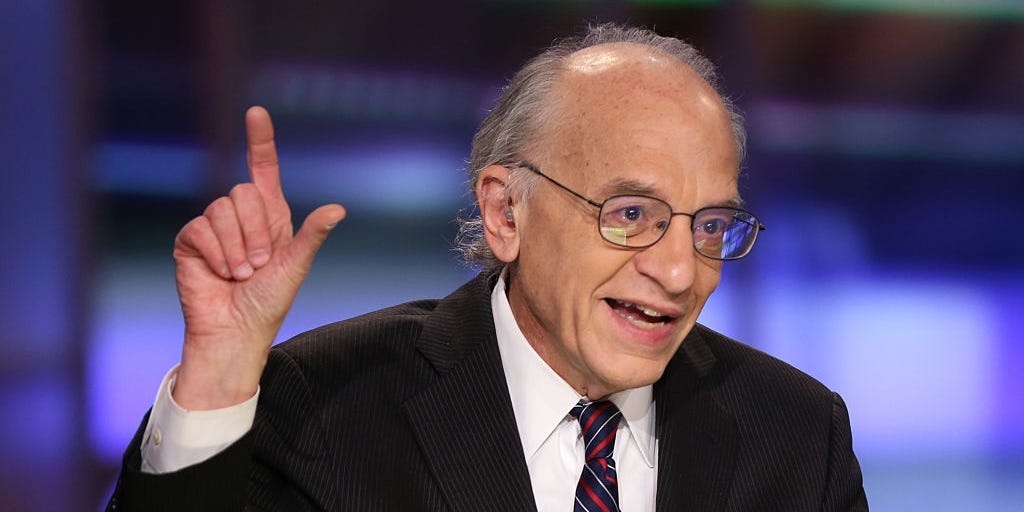The stock market’s current valuation represents “a really good deal” for investors, according to Wharton professor Jeremy Siegel.The S&P 500 is trading at a forward price-to-earnings ratio of about 19x, slightly above its historical average.Siegel expects the stock market to hold up relatively well into year-end despite high interest rates and a rising US dollar. Loading Something is loading.
Thanks for signing up!
Access your favorite topics in a personalized feed while you’re on the go.
Long-term investors that are trying to build wealth should continue to buy stocks, according to Wharton professor Jeremy Siegel.
Siegel told CNBC on Tuesday that the stock market’s current valuation represents “a really good deal” even as investors worry about a potential recession, elevated interest rates, and high inflation.
The S&P 500 currently trades at a forward price-to-earnings ratio of about 19x, which is slightly above its five-year and 10-year historical average of 18.7x and 17.5x, respectively, according to data from FactSet.
Siegel said the current stock market dynamics suggest long-term returns of at least 5% after inflation.
“If you’re a long-term investor it’s going to be a very healthy margin to build wealth over the long run,” Siegel said.
As for the short-term, Siegel expects the stock market to hold up relatively well into year-end despite the constant worries about inflation and what the Federal Reserve might do in response to that inflation.
That’s because the economy is holding up well, and strong economic data, even though it might mean more interest rate hikes, is ultimately good for stock prices.
“Given the strength of the economy, and that’s what the stock market loves. That’s why, even when we have a slightly hotter PPI, slightly higher CPI, if we get good real economic data in there, you see the stock market rally. And that’s why I think we could still have a firm, not a surging, but a firm equity market through the end of the year,” Siegel said.
The Fed will make an interest rate decision at the conclusion of its meeting on Wednesday, with the market currently expecting that the Fed pauses its interest rate hikes this month and possibly raise rates one more time before the end of the year.
Finally, investors shouldn’t be rooting for any interest rate cuts from the Fed because that will likely only happen in the event of some type of economic shock.
“I think the only thing that is going to really push them to lower rates is that unemployment rate going up, a big slowing in the employment picture,” Siegel said. And that would probably be bad news for the stock market.
